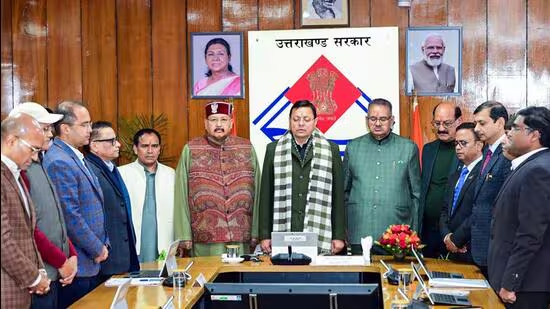As India launches the New Education Policy, the time is ripe now to rethink one of the most enduring aspects of learning i.e. how we assess the knowledge that is disseminated. In an age that is defined by Artificial Intelligence, where intelligent machines can write essays for you, analyze the presented data, and even ape creativity, academicians now face a different question – from “What do students know?” to “What can students do with what they know?”
Almost from the time formal schooling began, exams have focused on memorization and delivery. However, as AI blurs the line between knowledge and information, traditional examination systems are becoming redundant. The National Education Policy (NEP) 2020, along with recent reforms suggested by UGC and NAAC, calls for a strategic shift from rote to comprehension, from mere teaching-learning to imparting a competency and skill based holistic education. This vision closely matches Woxsen University’s educational philosophy: to create an environment where learning is hands-on, ongoing, and spearheaded by technology.
From Rote to Relevance
NEP emphasizes that assessments should shift from cumulative, result oriented exams to seminal and analytical evaluations. AI is a strong ally in this change. At Woxsen, AI-enabled learning platforms provide real-time feedback on assignments, simulate problem-solving scenarios, and adapt to each student’s pace and learning style. These systems enable our teachers to assess not just what students remember but also how they think, analyse, and use knowledge in various real-life situations.
Embracing Continuous and Competency-Based Evaluation
Recent UGC guidelines promote continuous comprehensive evaluation (CCE) backed by digital tools that monitor learning outcomes over time. In tandem, the new NAAC Assessment and Accreditation Framework also emphasize Outcome-Based Education (OBE), focusing on employability skills, and innovation.
At Woxsen, we have integrated AI-driven analytics to evaluate competencies and skills through live projects, simulations, and peer collaborations. This approach reflects the NEP’s recommendation for all-around assessments that include self-evaluations, peer reviews, and faculty feedback, making the learning experience more reflective, effective and personalized.
AI as a Co-Creator in Learning
Instead of seeing AI as a threat, Woxsen views it as a partner in the students’ learning journey. AI tools help create adaptive assessments that present different challenges based on each student’s progress. They also assist faculty in evaluating critical thinking, ethical reasoning, and creativity – areas that are often overlooked by traditional exams. This fits the NEP’s focus on fostering 21st-century skills such as problem-solving, teamwork, and digital expertise.
Authentic and Experiential Assessment
Aligned with NAAC’s push for innovative education, Woxsen uses experiential assessment models – from entrepreneurship incubation to social impact labs – where students demonstrate practical learning. These projects are assessed with AI-assisted rubrics that ensure fairness, transparency, and thorough feedback. Such methods reflect the global movement toward authentic assessment, which values creativity and context more than memorisation. This has also led to the establishment of a vibrant start-up culture in Woxsen.
A Future Defined by Competence, Character, and Creativity
Assessment in the AI era must capture not only intelligence but also integrity. As academic stakeholders embrace this change, Woxsen remains dedicated to blending human insight with technological precision. The future will belong to learners who think ethically, act creatively, and adapt continuously.
Moving beyond tests/exams is not the end of evaluation; it is the beginning of a transformation. In this new model, AI does not substitute human insight; rather, it augments it. Education, once measured by grades, will now be assessed by its true meaning.






























